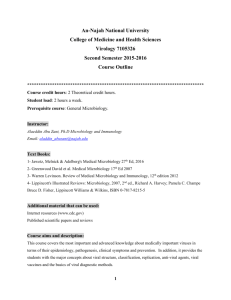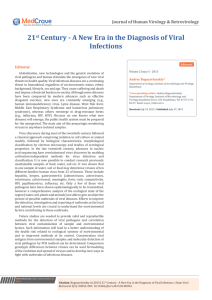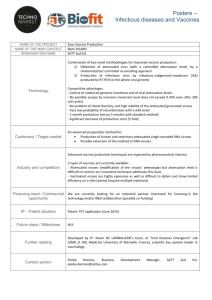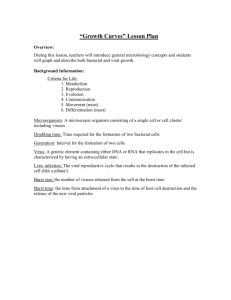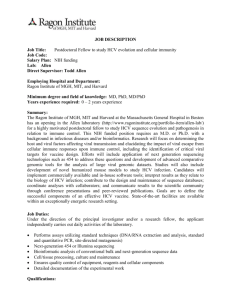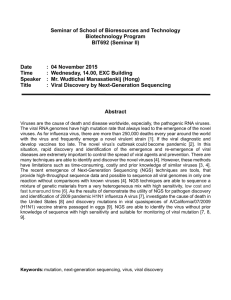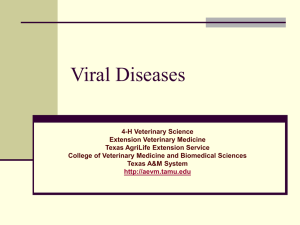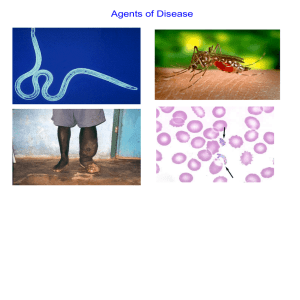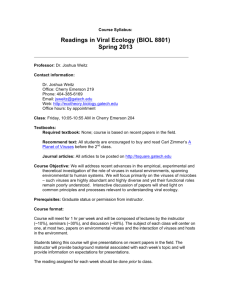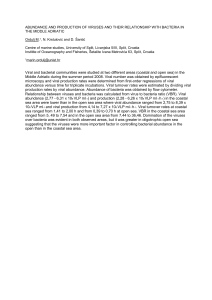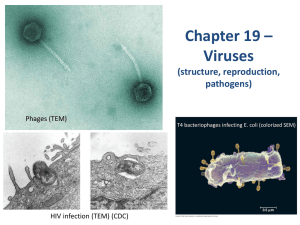click here
advertisement
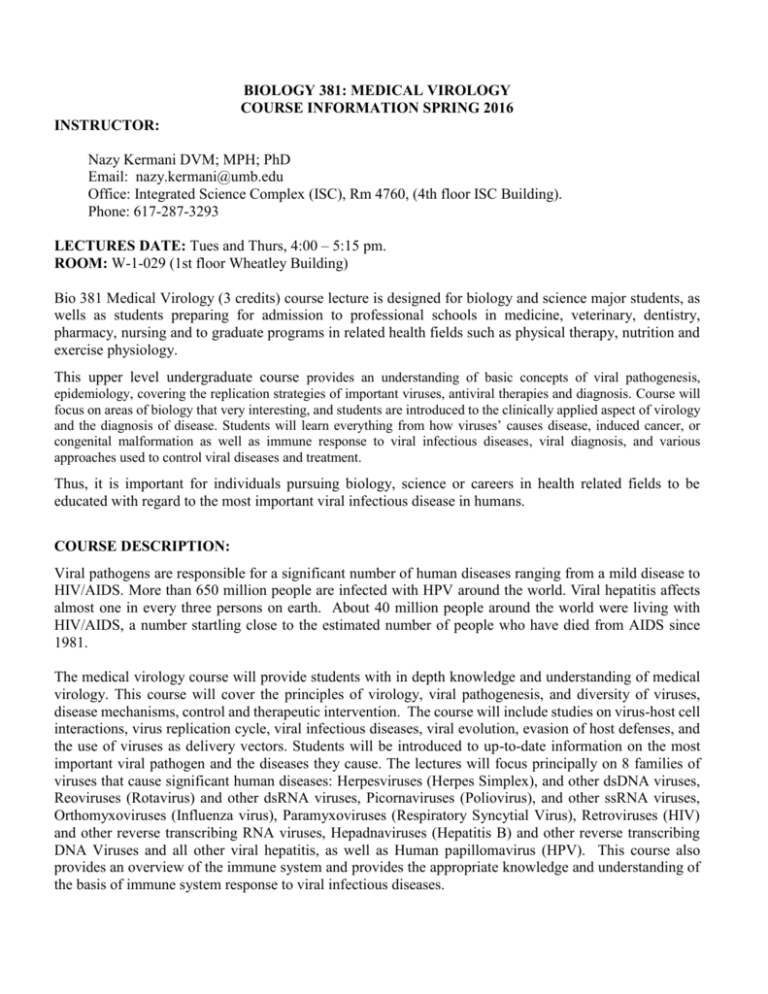
BIOLOGY 381: MEDICAL VIROLOGY COURSE INFORMATION SPRING 2016 INSTRUCTOR: Nazy Kermani DVM; MPH; PhD Email: nazy.kermani@umb.edu Office: Integrated Science Complex (ISC), Rm 4760, (4th floor ISC Building). Phone: 617-287-3293 LECTURES DATE: Tues and Thurs, 4:00 – 5:15 pm. ROOM: W-1-029 (1st floor Wheatley Building) Bio 381 Medical Virology (3 credits) course lecture is designed for biology and science major students, as wells as students preparing for admission to professional schools in medicine, veterinary, dentistry, pharmacy, nursing and to graduate programs in related health fields such as physical therapy, nutrition and exercise physiology. This upper level undergraduate course provides an understanding of basic concepts of viral pathogenesis, epidemiology, covering the replication strategies of important viruses, antiviral therapies and diagnosis. Course will focus on areas of biology that very interesting, and students are introduced to the clinically applied aspect of virology and the diagnosis of disease. Students will learn everything from how viruses’ causes disease, induced cancer, or congenital malformation as well as immune response to viral infectious diseases, viral diagnosis, and various approaches used to control viral diseases and treatment. Thus, it is important for individuals pursuing biology, science or careers in health related fields to be educated with regard to the most important viral infectious disease in humans. COURSE DESCRIPTION: Viral pathogens are responsible for a significant number of human diseases ranging from a mild disease to HIV/AIDS. More than 650 million people are infected with HPV around the world. Viral hepatitis affects almost one in every three persons on earth. About 40 million people around the world were living with HIV/AIDS, a number startling close to the estimated number of people who have died from AIDS since 1981. The medical virology course will provide students with in depth knowledge and understanding of medical virology. This course will cover the principles of virology, viral pathogenesis, and diversity of viruses, disease mechanisms, control and therapeutic intervention. The course will include studies on virus-host cell interactions, virus replication cycle, viral infectious diseases, viral evolution, evasion of host defenses, and the use of viruses as delivery vectors. Students will be introduced to up-to-date information on the most important viral pathogen and the diseases they cause. The lectures will focus principally on 8 families of viruses that cause significant human diseases: Herpesviruses (Herpes Simplex), and other dsDNA viruses, Reoviruses (Rotavirus) and other dsRNA viruses, Picornaviruses (Poliovirus), and other ssRNA viruses, Orthomyxoviruses (Influenza virus), Paramyxoviruses (Respiratory Syncytial Virus), Retroviruses (HIV) and other reverse transcribing RNA viruses, Hepadnaviruses (Hepatitis B) and other reverse transcribing DNA Viruses and all other viral hepatitis, as well as Human papillomavirus (HPV). This course also provides an overview of the immune system and provides the appropriate knowledge and understanding of the basis of immune system response to viral infectious diseases. In addition, this course will introduce students to transformation and oncogenesis and will learn how viral infection can contribute to malignancy or congenital malformation. Students will also learn about bacteriophages, prions, origin of viruses and emergence of new viruses.
